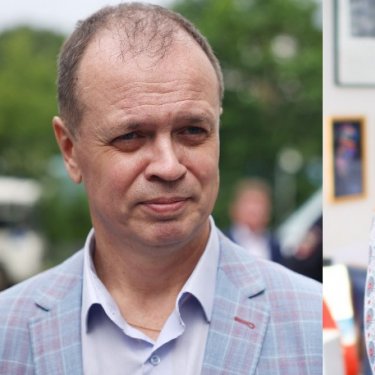After targeting journalists, Russian authorities now targeting their lawyers

While stepping up their harassment of journalists via the “foreign agents” law, the Russian authorities are now also targeting their lawyers. Reporters Without Borders (RSF) calls for an end to the harassment and prosecution of media lawyers and condemns the steps being taken to deprive reporters of legal assistance.
Читать на русском / Read in russian
Yevgeny Smirnov – one of the lawyers defending Ivan Safronov, an investigative reporter specialising in the military who is charged with treason – has become the second lawyer to flee Russia in the past three months.
The target of disciplinary proceedings by the Leningrad region bar association at the behest of the Federal Security Service (FSB), Smirnov fled to Georgia in late November in order to be able to continue defending his clients. The FSB accuses him of failing to be present for six investigative procedures without a valid reason.
Ivan Pavlov, a leading human rights lawyer who is also defending Safronov, was already forced to flee the country in September as a result of disciplinary proceedings and accusations that he had divulged confidential information about the Pavlov investigation.
A wanted notice has been issued for Pavlov, who headed Komanda 29, a coalition of lawyers and journalists defending freedom of expression, and he was placed on the “foreign agents” list on 8 November. So too have four of his former colleagues in Komanda 29, which was dissolved in July after being accused – wrongly, they say – of links to a Czech NGO branded by the Russian authorities as “undesirable.”
“These proceedings and this use of the ‘foreign agents’ label against media lawyers is designed solely to put additional pressure on the journalists they defend, to isolate these journalists and to deter those who could assist them,” said Jeanne Cavelier, the head of RSF’s Eastern Europe and Central Asia desk. “We urge the Leningrad region bar association and the Russian justice ministry not to yield to the FSB’s pressure and to drop all the baseless proceedings against lawyers who defend journalists, so that they can practice their profession in the manner prescribed by the law.”
The authorities began a year ago to place media outlets, journalists and now lawyers on the “foreign agents” list. The two Komanda 29 lawyers were preceded by the head of the Mass Media Defence Centre (MMDC) Galina Arapova, a leading source of expertise and legal assistance for media in difficulty, who became the first lawyer to be placed on this denigratory register on 8 October. There were 11 media entities on the list in December 2020 but another 85 entities and journalists have been added in the past year.
To avoid fines and criminal proceedings, the now 99 “media foreign agents” must add a 24-word declaration in large letters, identifying themselves as foreign agents, to every article and online post and every statement they issue. And they must send a detailed report of their income and expenses to the justice ministry every quarter and pay for an independent audit of these reports every year. Individuals on the “foreign agents” list must also create a specific legal entity for this purpose.
The “foreign agents” law originally targeted NGOs receiving international funding when it was first promulgated in 2012. It has since been amended many times, especially in 2017, in order to target media outlets, and in 2019, to include individual journalists and bloggers. The law’s wording has become so vague that it is now easy for the authorities to use it against anyone they want to silence.
The confusion surrounding the law serves to intimidate not only journalists and sources but also the readers and advertisers of a media outlet placed on the list, with the aim of making the outlet gradually disappear. This is what has been happening to Meduza, Russia’s most popular news website, whose future has been uncertain since it was added to the register in April.
Russia is ranked 150th out of 180 countries in RSF's 2021 World Press Freedom Index.



